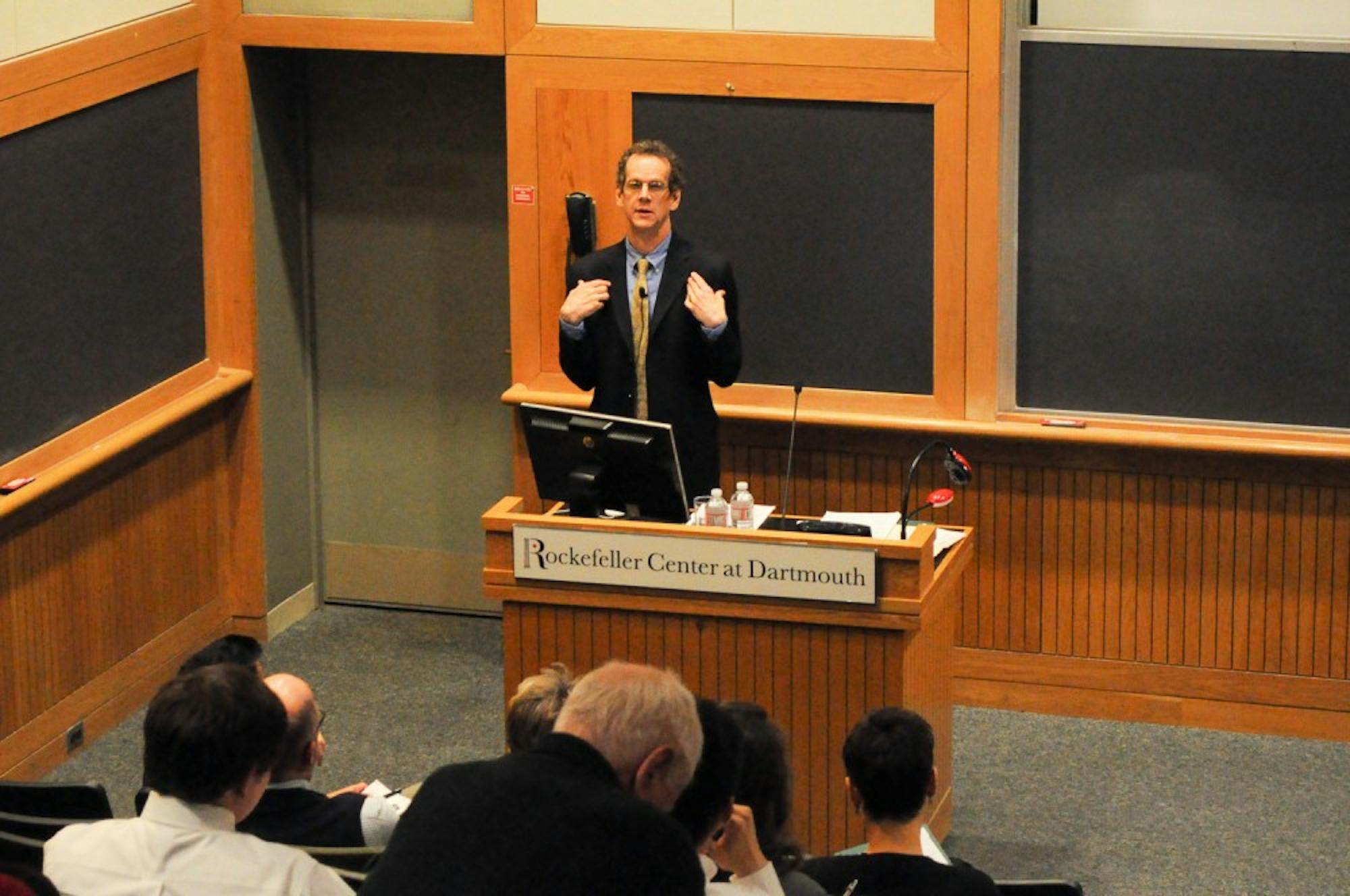The war on terror is not a physical battleground but an idea, Georgetown University Law Center professor David Cole said at a Thursday lecture marking the College’s celebration of Law Day. Famed for his defense in Texas v. Johnson (1989), which declared the federal law against flag-burning unconstitutional, Cole discussed President Barack Obama’s ability to end the war.
The American Bar Association proposed May 1 as Law Day in 1957 to celebrate the rule of law and the American legal system. The College’s event will continue today with a panel on past and future security challenges.
Cole, who has represented people whose rights have been infringed upon in the name of national security both before and after Sept. 11, said the American public subscribes to a “paradigm of prevention,” a term coined by former U.S. attorney general John Ashcroft to describe the government’s justification of aggressive tactics by painting them as preventative efforts against potential future threats.
By claiming an imperative of national security, the government justifies intruding on certain people’s civil liberties, especially the rights of foreign nationals, Cole said.
“We tend to adopt policies that deny the liberties and rights of some people to secure the rights of others,” Cole said, adding that some people more readily tolerate these policies when the government establishes a sense of “us” versus “them.”
Ending the war means more than recalling troops, Cole said. Obama can end the war on terror, he said, because though Congress has authorized the use of military force against terrorist threats, it does not require that such force be used.
Cole then discussed how ending the war on terror would affect four tools currently used to respond to terrorism: detention and killing, drones, surveillance and accountability.
He distinguished detention and killing during wartime, when these actions are based on a target’s relationship to a larger enemy, and detention and killing during peacetime, when punishments must respond to an individual’s actions.
Drones are problematic in two respects, Cole said. First, the secrecy surrounding the drones program removes the accountability that comes with more conventional acts of aggression, and second, drones desensitize the act of killing, he said.
While the National Security Agency’s powers are not contingent upon wartime status, war provides an incentive to engage in extensive surveillance.
“Thanks to Edward Snowden, we now know that we have a surveillance regime,” Cole said.
Ending the war on terror, Cole said, would diminish the incentive to relinquish civil liberties in exchange for national security. Accountability, too, he said, would increase.
“We have had very little accountability about the war crimes that we committed,” Cole said. “It is often the case that accountability comes in retrospect long after the war.”
Government major Gray Zabel ’15, who attended the lecture after discussing counterterrorism with his roommate, said he approached the lecture ambivalent about the topic but left convinced by Cole’s argument for greater transparency.
“I thought it was extremely persuasive,” Zabel said. “He definitely took what is a far-reaching and complicated argument and condensed it into a few really simple arguments which I appreciated.”
University of Queensland public policy professor Katharine Gelber, who will speak in today’s panel, said that the “liberty verses security dichotomy” has increased in popularity as a subject of discussion.
Gelber, who is currently researching post-Sept. 11 counter-terrorism policies in the U.S., the U.K. and Australia, said her studies revealed that re-conceptualizing free speech, and the spread of the idea that speech can be harmful, leads to increased acceptance of civil liberty limitations.
Government professor Sonu Bedi, a member of the legal studies faculty group and Law Day organizer, said anyone who is concerned about their individual safety and liberties, including students, can relate to discussions of free speech and the war on terror.
College students, in particular, Cole said, should be engaged in discussing these issues.
“All of us, and particularly when we’re young,” he said, “need to be able to develop our ideas and our world views in a safe and secure place.”
Philosophy professor Susan Brison, who helped organize Law Day, said the topic of free speech is particularly relevant at Dartmouth due to recent controversies.
The College’s Law Day focused on free speech and the war on terror.




